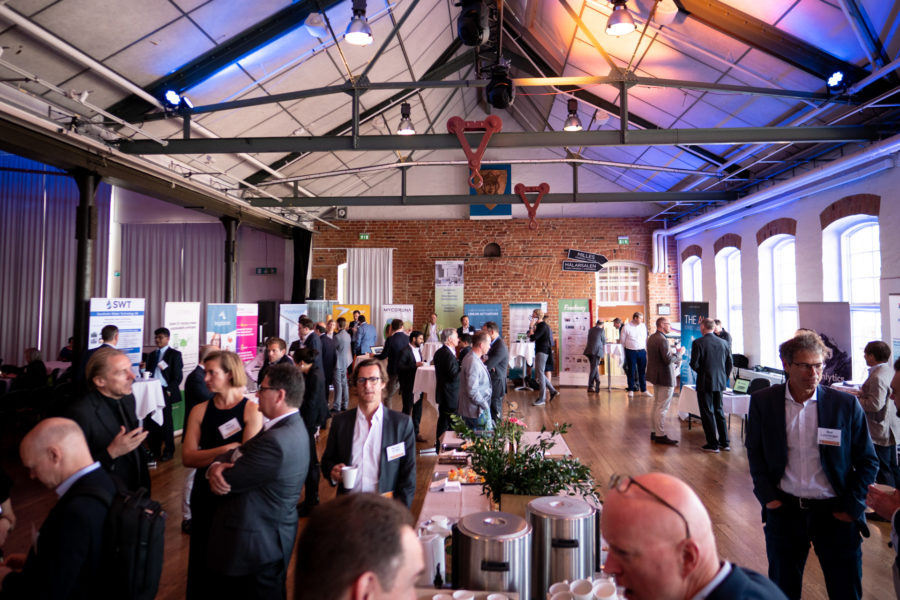18th June 2019 Stockholm, Sweden
Supporting UK Cleantechnology’s Access to Finance

According to the recent UN Intergovernmental Panel on Climate Change (IPCC) 1.5 degree report, the world must see an annual investment of $2.4 trillion in clean energy through 2035 to limit our global average temperature increase within 1.5 degrees and stave off some of the most catastrophic damage from climate change. Considering the longer payback period that is a common characteristic of clean technologies, this requires a significant change in both the mindset and habit of the financial sector to move away from short-term financing to long-term financing, with greater focus on financing upfront investments as opposed to operating costs. Certainly, recent years have been marked by some signs of positive progression as the global market for green finance has gone from strength to strength (with cities such as London and Amsterdam leading the way) as prices of clean technologies continue to fall as a result of the learning curve and economy of scale and businesses become more concerned of regulatory interventions and changing consumer behaviour. According to the Climate Policy Initiative, global climate finance flows is expected to have reached $510-530 billion in 2017 from $463 billion in 2016, but much of this can be accounted by the green bond markets that has grown to a market size of $180 billion since its conception in 2007. Nevertheless, the gap between the current finance flow into clean technology and the level of finance flow needed remains enormous, with large financial intermediaries and institutional investors expressing concerns over the number and volume of green investment opportunities with appropriate risk-return profiles being limited.
Against this backdrop, green investment platforms such as the Cleantech Forum Europe, hosted annually by the Cleantech Group across Europe, play an important role in convening cleantech entrepreneurs and innovators with corporate and financial investors. The forum provides a valuable networking platform where pioneering businesses with the potential of disrupting today’s carbon-intensive economy, have the opportunity to access finance and build business partnerships to facilitate market access and scale. This year, the Foreign and Commonwealth Office’s (FCO) and Department for Business, Energy and Industrial Strategy’s (BEIS) joint Science and Innovation Network partnered with the Energy Systems Catapult to bring over a delegation of six leading UK cleantech companies to this year’s Cleantech Forum hosted in Stockholm following a competition that produced more than 45 submissions. The companies had the opportunity to showcase their technologies and business solutions on stage to an audience of financers and procurers and/or on a more granular level through face-to-face investor meetings.

James Murray of Verv showcasing their AI and blockchain-based energy management offer
On the first day of the Cleantech Forum, James Murray of Verv, one of the UK’s leading Internet of Things (IoT) companies, presented to an audience of financers and procurers on their high speed data sampling (circa 5 million times faster than a smart meter) and cutting-edge AI technology that provides their customers with real-time visibility of their energy cost and consumption, as well as access to low carbon energy via their proprietary blockchain platform. However, Verv was not alone among the UK companies that is adopting an important role in the clean energy transition in the UK by facilitating the shift towards a more decentralised and localised energy system. For instance, Moixa, the UK’s leading domestic energy storage manufacturer and solution provider (and a Global Cleantech 100 company) and another company that was a part of our delegation, is currently managing the world’s largest fleet of behind-the-meter storage assets and involved in one of the UK Government’s prominent smart energy systems demonstration projects. Similarly, Demand Logic has developed a data-acquisition hardware that in concert with their cloud-based software provide a digital retrofit to commercial properties, already resulting in carbon savings equivalent of around 5000 households across 100 commercial properties.

Sonny Masero of Demand Logic at the Cleantech Forum Europe in Stockholm
Although much of the digitisation right now is taking place at the grid edge, the digitalisation has for a longer period been benefitting the energy system from the transmission- and distribution-side of things. On the second day of the Cleantech Forum, Rob Sunderland of Digital Engineering gave a presentation highlighting their pioneering digital asset health assessment for transmission operators that uses weather simulation asset response models and data analytics from existing defects, to inform asset owners about the conditions of infrastructure, maximising the use of existing assets and avoiding failures.

Rob Sunderland gives a company pitch on Digital Engineering’s digital health assets management solution
While digitisation has already enabled significant gains in the low carbon transformation of the electricity sector by providing the needed flexibility to accommodate a rising share of renewables, in countries such as the UK it will be the decarbonisation of the heating sector that will present some of the major challenges moving forward towards a zero-carbon economy. Digitalisation of the heating sector is also paving avenues for carbon reduction and it is indeed in this space that the London-based Minibems thrives as it utilises IoT technology to deliver energy efficiency in building heating resulting in performance improvements that can save 25-40% of fuel use.
However, although the clean energy transition has so far taken the centre stage in the global effort to mitigate the impact of climate change, ambitious actions are required across the economy and technological innovations to address industrial emissions are critically needed. Dr Athan Fox, the technology director at Aurelius Environmental also gave a short talk on the second day of the Cleantech Forum about their pioneering recycling process for lead acid batteries, an industry that emits enormous amounts of CO2 emissions (4500 tonnes per 10K tonnes of LABs), which enables approx. 80-90% reduction in carbon footprint, whilst allowing 20% savings across the supply chain and improved battery performance (by ~30%).

Athan Fox of Aurelius Environmental presenting on their recycling process for lead acid batteries
Networking platforms such as the Cleantech Forum Europe play a critical role for cleantech entrepreneurs and innovators, not only to access the much needed finance and market visibility to unlock the commercial viability and scale-up (deployment) of their low carbon technologies and solutions, but also to provide equity investors, debt financiers and corporate procurers with the insights of the most cutting-edge technologies and innovations available to enable decarbonisation across the economy. However, while the technological push factors (e.g., financing) are essential for the clean energy transition, the market-pull is an inevitable prerequisite for success moving forward – whether through more ambitious carbon pricing or simply legislation.